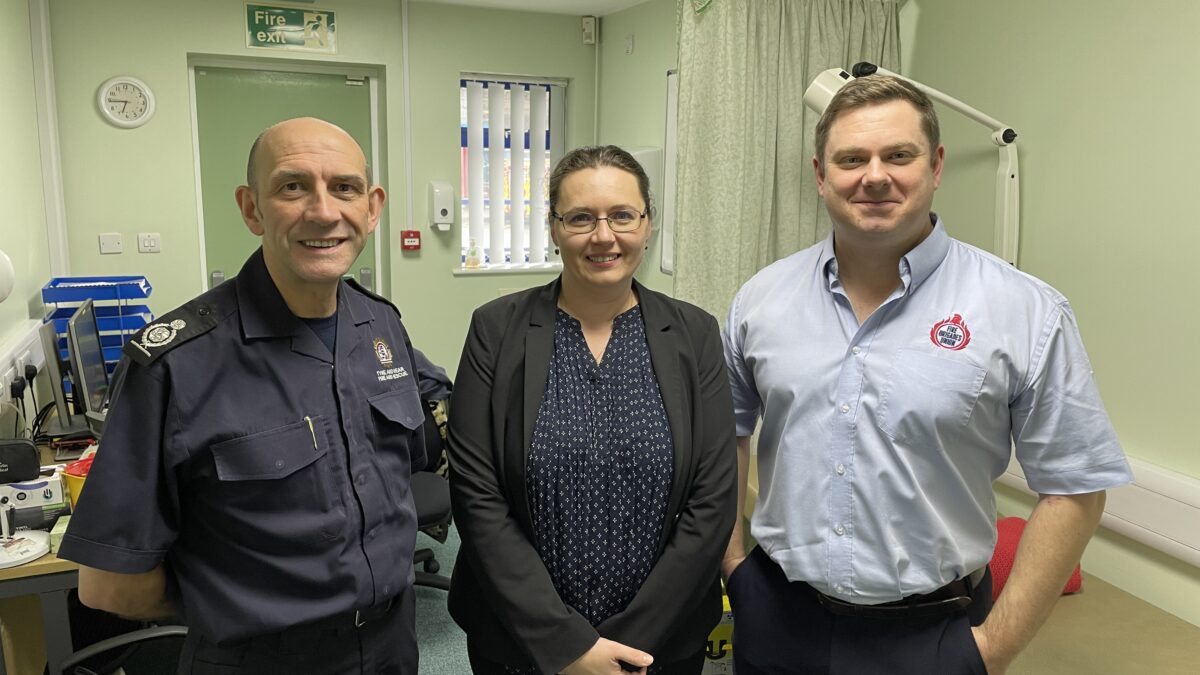A North East fire and rescue service has become the first in the country to support life-changing research that could help save the lives of its firefighters.
Firefighters at Tyne and Wear Fire and Rescue Service (TWFRS) have undergone vital health monitoring to support research into firefighter safety.
The monitoring is part of research being conducted by the University of Central Lancashire (UCLan), which explores the potential effects of contaminants produced from fires.
The project, commissioned by the Fire Brigade’s Union (FBU), looks at the need for thorough decontamination, and the links to cancer in firefighters.
As part of that research, TWFRS invited leading professor in the field, Anna Stec, to their headquarters last week to collect biological samples from volunteering firefighters.
Over two days, Professor Stec and her team worked with the Occupational Health Unit at TWFRS to take blood and urine samples.
The samples from the firefighters, all with a varying lengths of service and roles, will be analysed to identify the number of firefighters with occupational cancers and other diseases identified from worldwide studies.
Anna Stec, professor in fire chemistry and toxicity at the University of Central Lancashire, said: “This is the first study of its kind in UK and the research brings to light the wide range of occupational hazards that firefighters face.
“It is vital that firefighters can continue to do their jobs as safely as possible, and the research shows that measures such as health monitoring and reducing exposure from contaminants at the workplace will play an important part in protecting firefighters.”
“We hope that working with organisations like TWFRS will not only help us to create a safer working environment in Tyne and Wear, but will also introduce a change to the wider sector.”
And today (Wednesday) one of TWFRS’s most senior firefighters is welcoming the research and praising firefighters for taking part.
Deputy Chief Fire Officer Peter Heath said: “This is a huge step forward in the continuous drive towards improving firefighter safety and I’m proud of our firefighters for volunteering to take part in this vital research into the potential effects of contaminants.
“We hosted a seminar last year about DECON alongside the FBU and have been clear that we want to work with academics and our union representatives to make the role even safer.
“We have made significant investment in firefighter safety and that will continue in the coming years.”
FBU Secretary for TWFRS, Wayne Anderson, said: “This is a brave step in the fire and rescue sector and we want to thank TWFRS for working with us to make this research a priority.
“Firefighter safety is so important and it has come a long way but there is more we can do as a sector to improve the lives of our firefighters.”
TWFRS have already taken a number of steps to incorporate Professor Stec’s advice into their firefighter’s everyday lives.
This includes investing in new appliances that offer clean cab technology and particulate monitoring within the cabs.
They have also created an allocated decontamination locker on fire appliances to store dirty PPE and equipment.
While welfare decontamination packs have been introduced on station for those firefighter returning from difficult incidents.
For more information about the work TWFRS are doing on contaminates, please visit their website.
To register for the health monitoring go to the Firefighters Cancer and Disease Registry www.uclan.ac.uk/FCDR



